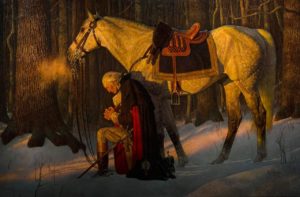Good Housekeeping magazine has a list of the most famous and popular Thanksgiving songs of all time, and more than half of them are about food. My favorite was recorded by the jazz pioneer Cab Calloway in 1948, called “Everybody Eats When They Come to My House.” It is not about turkey, but does mention gravy, as well as tomatoes, bananas, bologna, pancakes, salami, bagels, pasta, knish, latke, and even chili con carne (“don’t be so picky, Mickey”). Calloway danced around in his gaudiest zoot suit while singing, “Eat the tables, the chairs, the napkins, who cares – you got to eat if it chokes you.”
 The line reminds me of several times I ended the day on the couch in a food coma. The day of Thanksgiving most Americans celebrated yesterday is the quintessentially American holiday, a tradition as old as the country itself. The first official Thanksgiving proclamation, written by George Washington in 1789, expressed the American people’s gratitude for “an opportunity peaceably to establish a form of government for their safety and happiness.” Americans have celebrated their blessings ever since.
The line reminds me of several times I ended the day on the couch in a food coma. The day of Thanksgiving most Americans celebrated yesterday is the quintessentially American holiday, a tradition as old as the country itself. The first official Thanksgiving proclamation, written by George Washington in 1789, expressed the American people’s gratitude for “an opportunity peaceably to establish a form of government for their safety and happiness.” Americans have celebrated their blessings ever since.
During the Civil War, Abraham Lincoln urged all Americans to “implore the interposition of the Almighty Hand to heal the wounds of the nation and to restore it as soon as may be consistent with the Divine purposes to the full enjoyment of peace, harmony, tranquility and Union.” In the depths of the depression, Franklin Roosevelt expressed the nation’s “humble thanks for the blessings bestowed upon us,” and in 1996, President Clinton offered thanks to “the genius of our founders in daring to build the world’s first constitutional democracy on the foundation of trust and thanks to God.”
The prosperity we enjoy today has been recognized in the annual Presidential Thanksgiving proclamations often, many chief executives mentioning the bounty of American agriculture. Ulysses Grant wrote in 1879 that our “Exuberant harvests, productive mines, ample crops of the staples of trade and manufactures, have enriched the country.” Grover Cleveland agreed, in 1887, that “by His gracious favor the earth has yielded a generous return to the labor of the husbandman.” The thought still resonated decades later when President Kennedy wrote, “It is right that we should be grateful for the plenty amidst which we live; the productivity of our farms, the output of our factories, the skill of our artisans, and the ingenuity of our investors.”
America’s bounty is so readily apparent that we take it for granted. Yet we should remember that even history’s richest man, John D. Rockefeller (whose fortune adjusted for inflation was 5 times that of Bill Gates) lived without air conditioning, feared now-obsolete diseases, and traveled slowly and uncomfortably on dirt roads and dusty trains. He had many servants to prepare his food, but could not get fresh fruit or vegetables out of season, and never tasted a burrito, a pizza, or a Chilean sea bass. Even his lifestyle was in stark contrast to today’s Americans, with supermarkets where ordinary people get fresh food year-round, at reasonable prices, from all over the world. Not to mention today’s interstate highways, international airports, central heating, indoor plumbing, regular trash pickup, and antibiotics.
Thanks to the blessings of a prosperous economy made possible by rich natural resources and abundant, affordable energy, Americans are now free of the everyday drudgery of the past – plowing fields, chopping wood, hauling water, milking cows, and dying young.
Modern insecticides permitted the control of disease-carrying and crop-destroying bugs and pathogens, fertilizers dramatically increase crop yields, and equipment like tractors and combines free people from back-breaking labor. Mechanized agriculture, hybrid seeds, drip irrigation and other technology produce crops that feed billions, using less land and water than ever.
People blessed to live in places like Western Colorado enjoy healthy and rewarding lives, thanks in part to an elaborate system of reservoirs, canals, pipelines, and treatment plants – still unfulfilled dreams in much of the world. The Grand Valley’s first settlers found only bare dirt, from the Colorado River to the Bookcliffs, as early photos show. Not even sagebrush before irrigation. But water conservation systems have turned such dry deserts into productive farmland and pleasant cities.
Constantly improving technology has enriched American life beyond measure, and our system of free enterprise has served us well. We should step back from the anger and vitriol of today’s politics – not just at Thanksgiving – and reflect instead on the Divine blessings of our rich natural resources, which allow us to say “everybody eats when they come to this house.”
This column first appeared in the Grand Junction Daily Sentinel November 29, 2019.




Comments on this entry are closed.